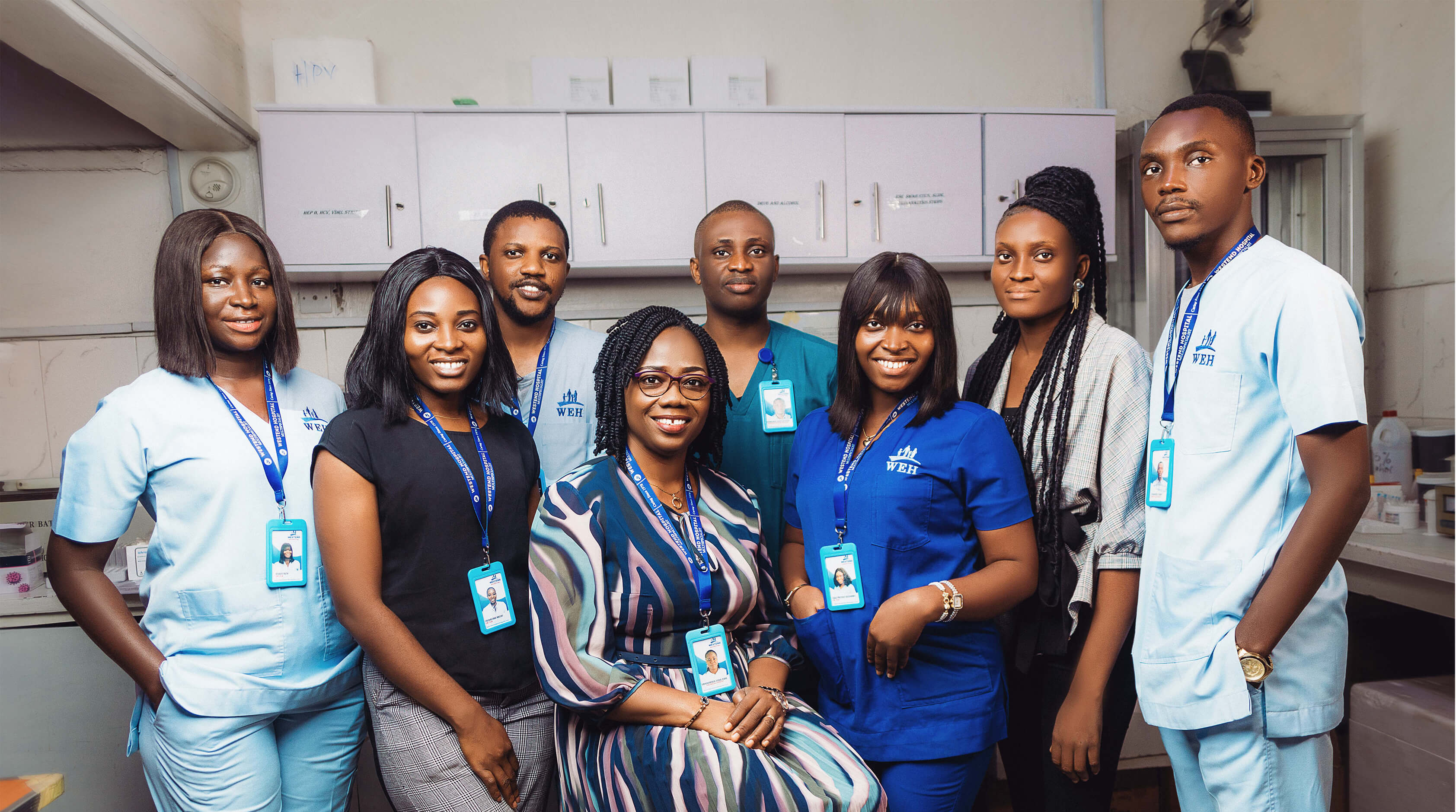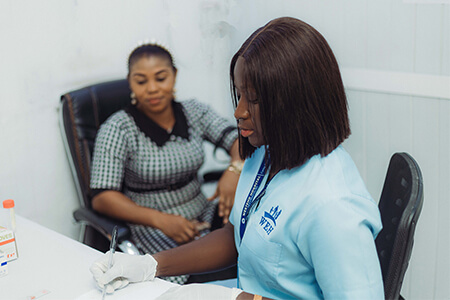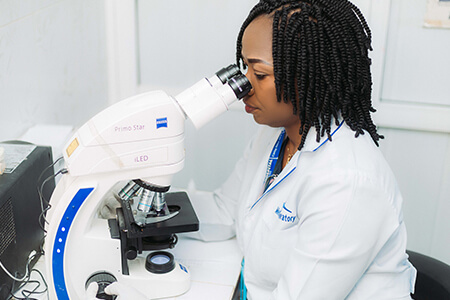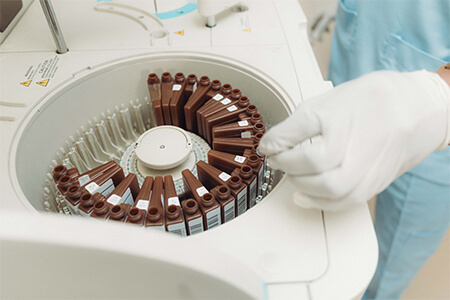Laboratory
Welcome to Laboratory Department
In a clinical laboratory, tests are performed on clinical specimens to gather data about a patient's health; which is essential for diagnosis, treatment, and prevention of disease. At Westend Hospital, we have highly equipped staff of certified medical laboratory scientists and experienced technicians. We offer cost-effective, close-to-home laboratory services that not only enhance diagnosis but monitor a wide range of conditions as well. Furthermore, we form one of the best clinical laboratories in Delta state and conduct a wide range of tests annually.







The most significant of all the results we offer is credibility.
Regardless of status, whether you're an inpatient, outpatient, or facing an emergency or life-threatening situation, rest assured our state-of-the-art laboratory is available 24 hours and every day of the week to offer guaranteed results that are quick and accurate in testing.
At Westend Hospital, the following laboratory specialties are available:
- Clinical/Chemical pathologist
- Medical Microbiologist/Immunologist
- Histopathologist
- Heamatologist
Our Approach
Our laboratory is located in the heart of Delta State, Nigeria. Aside from serving hospital patients, we facilitate tests for other clinics and hospitals nationally. Our laboratory provides a wide range of vast majority of testing equipment best for laboratory practices.
When doctor request to have a patient's blood sample tested, the following procedures are undergone:
Collection: First and foremost a doctor, nurse, technician, or phlebotomist will draw the patient's blood. Note that sample collecting tubes differ therefore every test has a special tube. It depends on the condition the patient might have, the doctor may also request a urine sample, throat swab, or any other sample as indicated. The next phase after the sample collection is labeling with the patient's name and other information. The sample is then received and processed by the laboratory, and testing begins.
Types of Testing
Chemistry Testing
Fluids and importantly the blood is tested for substances such as chemicals, drugs, etc, that indicate an abnormality or disease conditions. We check cholesterol and other tests for the risk of heart disease, glucose to monitor diabetes, or thyroxine to monitor the thyroid gland.
Terminology Testing
In this procedure, an analysis of the amount and function of one's blood cells and plasma is done. There are specific signs the doctor looks out for, one of them being the complete blood cell count (CBC), which indicates how many blood cells of each type are in a patient's blood, and the prothrombin time (PT), which measures the amount of time for the blood clot.
Microbiology Testing
This section indulges in tests related to a variety of specimen samples consisting of infections caused by bacteria, fungi, or parasites. Urine cultures for urinary tract infections are also conducted.
Virology Testing
We test for viral infections, rapid tests for respiratory viruses such as influenza, antibody tests for HIV, and molecular tests for noroviruses.
Immunology/Molecular Diagnostics
We conduct tests that determine the state of the immune system that is, checking its functions to make sure they are performing normally. An analysis of DNA and RNA is used in testing for a variety of diseases and also for the risk of developing diseases, and factor V Leiden genotyping for patients with blood clots.
Tumor Profiling Laboratory
Simply put, we analyze tumor DNA to predict the resistance of tumors and sensitivity to a vast variety of tailored drugs.
Laboratory Central Scheduling
- +234 (0) 807 420 2846
- laboratory@thewestendhospital.com
